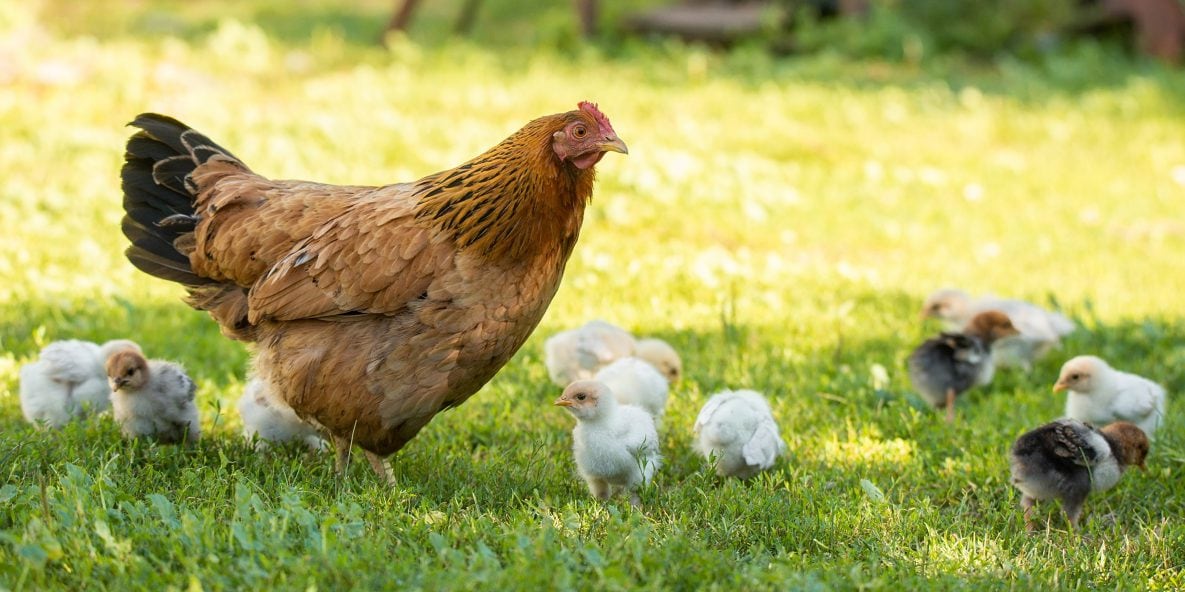Salmonella Outbreaks Linked to Backyard Poultry

Posted October 19, 2023
These outbreak investigations are over. Backyard poultry can still carry Salmonella germs that can make you sick. Always take steps to stay healthy around your flock.
- Illnesses: 1,072
- Hospitalizations: 247
- Deaths: 0
- States: 48 and Puerto Rico
- Investigation status: Closed

Backyard poultry, like chickens and ducks, can carry Salmonella germs even if they look healthy and clean. These germs can easily spread to anything in the areas where the poultry live and roam.
You can get sick from touching your backyard poultry or anything in their environment and then touching your mouth or food and swallowing Salmonella germs.
- Be prepared before you start a backyard flock:
- Consider whether poultry are a good fit for your family and your home. Use this checklist [PDF – 2 pages] to prepare the spaces and supplies that you will need for your backyard flock.
- Checkout these two videos: CDC Coops: Episode 1: Doja Chick and CDC Coops: Episode 2: Chick Inn for tips on how to stay healthy around your backyard poultry.
- Wash your hands
- Always wash your hands with soap and water immediately after touching backyard poultry, their eggs, or anything in the area where they live and roam.
- Use hand sanitizer if soap and water are not readily available. Consider keeping hand sanitizer at your coop.
- Be safe around backyard flocks
- Don’t kiss or snuggle backyard poultry, and don’t eat or drink around them. This can spread Salmonella germs to your mouth and make you sick.
- Keep your backyard flock and supplies you use to care for them (like feed containers and shoes you wear in the coop) outside of the house. You should also clean the supplies outside the house.
- Supervise kids around flocks
- Always supervise children around backyard poultry and make sure they wash their hands properly afterward.
- Don’t let children younger than 5 years touch chicks, ducklings, or other backyard poultry. Young children are more likely to get sick from germs like Salmonella.
- Backyard poultry should not be kept in schools, childcare centers, and other facilities with children younger than 5 years old.
- Handle eggs safely
- Collect eggs often. Eggs that sit in the nest can become dirty or break.
- Throw away cracked eggs. Germs on the shell can more easily enter the egg through a cracked shell.
- Rub off dirt on eggs with fine sandpaper, a brush, or a cloth. Don’t wash eggs because colder water can pull germs into the egg.
- Refrigerate eggs to keep them fresh and slow the growth of germs.
- Cook eggs until both the yolk and white are firm, and cook egg dishes to an internal temperature of 160°F to kill all germs.
- Source poultry from hatcheries that take steps to reduce Salmonella contamination.
- These hatcheries include those that have adopted the U.S. Department of Agriculture’s (USDA’s) best management practices to mitigate Salmonella contamination [PDF – 25 pages] and those that voluntarily participate in the USDA National Poultry Improvement Plan (USDA-NPIP) U.S. Salmonella Monitored Program [PDF – 17 pages].
- Clean and sanitize poultry display areas between shipments of new poultry.
- Be sure to remove dirt by cleaning first. Then apply disinfectant on the surface for the proper contact time recommended on the disinfectant label.
- Help keep your customers healthy.
- Provide handwashing stations or hand sanitizers next to poultry display areas and tell customers to wash hands right after leaving these areas.
- Display poultry out of reach of customers, especially children, so they cannot easily touch the poultry.
- Provide health information to owners and potential buyers of poultry before purchase. Consider placing this informational poster [PDF – 1 page] right beside flock display areas, and handing it out to customers.
- Learn more about how to protect your customers and employees from Salmonella and other diseases shared between animals and humans.
- Use best management practices [PDF – 25 pages] to help prevent Salmonella in poultry.
- Participate in the voluntary USDA-NPIP U.S. Salmonella Monitored Program [PDF – 17 pages] and certify that your flocks are monitored for Salmonella germs.
- Provide health information to owners and potential buyers of poultry before purchase. Consider sharing this informational poster [PDF – 1 page] with your customers. This graphic can be printed as a sticker and placed on poultry shipping boxes.
- Most people infected with Salmonella experience diarrhea, fever, and stomach cramps.
- Symptoms usually start 6 hours to 6 days after swallowing the bacteria.
- Most people recover without treatment after 4 to 7 days.
- Some people—especially children younger than 5 years, adults 65 years and older, and people with weakened immune systems—may experience more severe illnesses that require medical treatment or hospitalization.
- For more information about Salmonella, see the Salmonella Questions and Answers page.